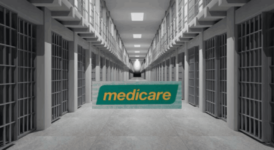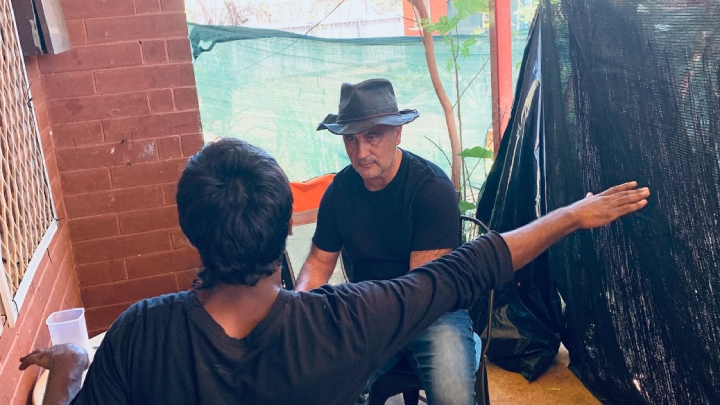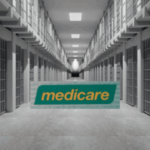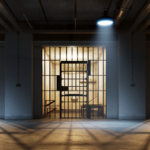Medicare Denial Sees Correctives Systems Destroy Prisoner Health to the Detriment of All

Australians are proud of Medicare: the 1984-established scheme that provides free or heavily subsidised universal healthcare to citizens and residents.
This is especially so, when compared with the health system in the US, which, without such a scheme, only cares for those who can afford it.
So, most people who are unaware that Medicare doesn’t extend to the incarcerated, both adults and children, are quite stunned to learn this. Yet, on reflecting for a moment, some go on to retort, “Yeah, but prisoners receive medical treatment inside, anyway”.
But while there are healthcare provisions provided in the various corrections systems of each state and territory in this country, these are often substandard, difficult to access, and required treatment and medications are often delayed long-term or even denied altogether.
Indeed, healthcare in Australian prisons basically constitutes a further form of punishment. And at times, the denial of prompt treatment translates into deaths in custody, which, more often than not, involve First Nations inmates, with officers repeatedly ignoring dying pleas with usual contempt.
But long-time advocate for the rights of prisoners, Gerry Georgatos, asserts it doesn’t have to be this way. And instead of taking what is a golden opportunity to restore the health of some of the most marginalised and vulnerable members in the community, governments rather enhance their decline.

Corporal punishment
“The poorest and most vulnerable individuals are found in prisons,” said Georgatos. “They comprise the lowest income base and the majority with significant physical and/or neurological impairments. Many come in from and return to homelessness, housing insecurity and crushing poverty.”
“The infirmaries in gaols are poorly resourced, understaffed and many are without physicians,” he continued. “What’s on the inside is not equivalent to what health services are on the outside. Access is at the discretion of Corrective Services, and the majority endure delays or indefinite access.”
Founder of the National Suicide Prevention and Trauma Recovery Project, Georgatos and the rest of the team were operating within the WA prison system over the pandemic period. And whilst they were aware of the Medicare issue previously, it still didn’t ready them for what they confronted.
According to Georgatos, many people leave prison in much worse condition than when they entered the system, and it’s not only custodial fatalities that lack of healthcare leads to, but this neglect can result chronic illnesses and, in turn, reduced lifespans.
“I have seen too much unaddressed preventable physical and mental suffering among the incarcerated,” Georgatos told Sydney Criminal Lawyers.
“I recount prisoners who complained for months and years of pains and because those who were meant to heed did not. They were not referred but given paracetamol. And their cancers spread.”
A convenient loophole
As was recently made clear by COVID-19, a deterioration in health in a sector of the community, results in a depletion in wellbeing for its entirety. And whilst the pandemic was an extreme form, this too applies to the health outcomes of prisoners, who generally return to live amongst us all.
The current adult prisoner rate in this country is around 40,500 individuals, whilst a little over 800 youth inmates, some as young as 10, are inside on an average night. And of course, much larger numbers rotate through Australian correctional facilities during any given year.
As a study released last month put it, the absence of Medicare in prisons wasn’t intended, but “is an historical anomaly that has led to a disparate system of healthcare, which, in turn, has far-reaching consequences for those in the criminal justice system, as well as the wider community”.
Section 19(2) of the Health Insurance Act 1973 (Cth) stipulates that Medicare is not available if any level of government, a local governing body or an authority established under government, is already providing professional healthcare services.
Therefore, the various state and territory corrective services agencies being authorities set up by government cancel out the need for Medicare via their provision of medical treatment. But, in reality, these systems are bastardising prisoners’ health in violation of international standards.
“It is established and self-evident that nearly all of Australia’s prisoners are people living in the lowest quintile of income. They also comprise the quintile of the weakest primary and secondary health,” Georgatos underscored.
“In addition, the incarcerated in effect are denied access to the Pharmaceutical Benefits Scheme and denied access to the National Disability Insurance Scheme, with disastrous impacts,” he added.
Systemic racism
Whilst the ever-rising adult prisoner population in this country is deplorable in itself, the most horrifying aspect to it is that 32 percent, or just about 12,090 inmates, are First Nations individuals, whilst they in general only equate to 3.2 percent of the overall populace living on this continent.
Since the 1991 Royal Commission into Aboriginal Deaths in Custody report, more than 540 such deaths have occurred. And while many have resulted due to police and correctives using excessive force with impunity, another large portion is due to the wilful neglect of duty of care.
Veronica Nelson died in prison in 2020, after pleading for medical help for three days to no avail. Nathan Reynolds died of an asthma attack in 2018, with guards considering his calls for help a false alarm. And in 2017, officers ignored 20 pleas from Eric Whittaker as he suffered a brain aneurysm.
“The majority of preventable deaths in prison custody are of the younger, of individuals who should be enjoying the best of health in the bloom of their lives, but they are old before their time, with ailments and degenerations decades too soon,” Georgatos explained.
The prison abolitionist further pointed to the many coronial inquests into deaths in custody resulting from suicides, which often reveal that despite an individual having displayed multiple cries for help, including numerous self-harm incidents, prison authorities provide no professional assistance.
Rehabilitative at every level
“Australian Labor argues Medicare is universal and, at times, has included in their national policy platforms a promise to end the health discriminations of the incarcerated,” Georgatos said of the major party holding office at present. “They are yet to do so.”
The social justice advocate added that Medicare in prisons could ensure that a physician was on hand in every facility at all times around the clock. And health plans pertaining to individual prisoners could be developed, with adequate medicines and treatments being placed on the table.
And in having taken the opportunity to improve the lot of some of the most marginalised people in society, who often aren’t reached by healthcare systems on the outside, these people could leave institutions with improved physical and mental health, which, in turn, would reduce reoffending.
“It breaks my heart that we have to keep beating this drum. How many times do we have to argue that these are our most vulnerable and marginalised Australians, many who never had a chance from the beginning?” Georgatos said of his long campaigning to see this reform through.
“In the month ahead, I will be in the ear of prime minister Anthony Albanese, and first up, I will raise Medicare in prisons, pleading for an end of the worst health discriminations in Australia,” the prison reformist concluded.






